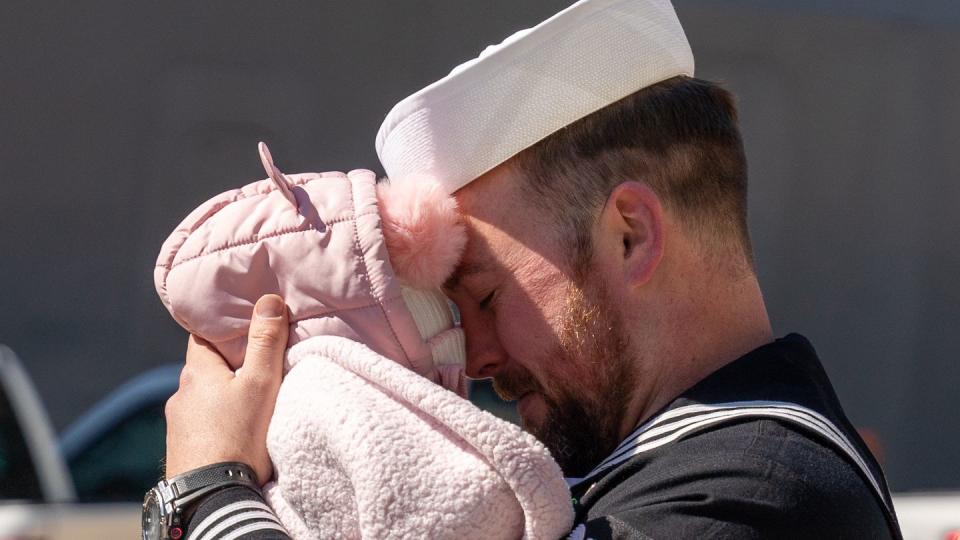Welcome home, Bataan Amphibious Ready Group
Roughly 4,000 sailors and Marines assigned to the Bataan Amphibious Ready Group and the embarked 26th Marine Expeditionary Unit returned home this week after an extended, nearly nine-month deployment in Europe and the Middle East.
They rode in on the amphibious assault ship Bataan and the dock landing ship Carter Hall, according to a Navy release.
“It is great to be home,” the commodore of Amphibious Squadron 8, Capt. Martin Robertson, said in a statement. “I’m proud of the Sailors and Marines of the Bataan Amphibious Ready Group who return home today knowing that for eight and a half months, they were the nation’s rapid response force.”

The embarked Marines left the group’s ships earlier this week and returned to Camp Lejeune, North Carolina, while the amphibious transport dock ship Mesa Verde is expected to pull into Naval Station Norfolk in the next few days, according to the Navy.
The ships deployed from Virginia on July 10, and were moved off of the Israeli coast following the Palestinian militant group Hamas’ Oct. 7 attack, as fears simmered of the conflict breaking out into a regional war.
Sailors also took part in efforts to prevent Iran-backed Houthi attacks in the Red Sea, and assisted Greece last summer in fighting wildfires, among a host of other missions.
Media reports revealed that the group’s deployment was extended due to issues the Navy is having in getting other amphibs to sea.
“These young men and women were called into action from the start to help stop the spread of wildfires in Southern Europe, to deter Iran from seizing U.S.-flagged merchant vessels in the Middle East, and they reacted swiftly at the onset of the crisis in the Bab-El Mandeb to ensure merchant shipping access to the Red Sea,” Robertson said. “Your sons and daughters stood ready to assist American citizens in countries impacted by the Israel-Hamas conflict, and their efforts directly prevented the conflict from expanding to other nations in the region.”

